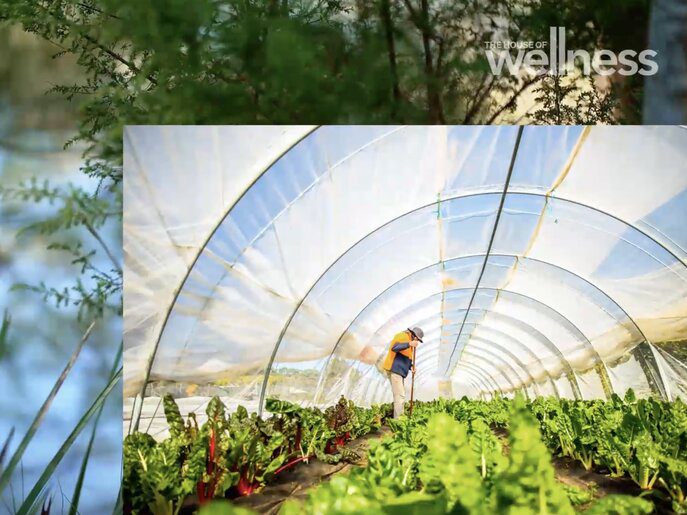Biodynamic farming is a holistic and sustainable approach to agriculture that goes beyond conventional organic farming. Developed in the early 20th century by Austrian philosopher Rudolf Steiner, biodynamic farming is based on the belief that a farm is a self-sustaining organism interconnected with the surrounding environment.
At its core, biodynamic farming emphasises a holistic philosophy that considers the farm as a complete ecosystem. This approach seeks to integrate the various elements of farming—soil, plants, animals, and humans—into a harmonious and balanced system. Unlike conventional farming methods, which often rely on external inputs like synthetic fertilisers and pesticides, biodynamic farming aims to create a closed-loop system that minimises reliance on outside resources. Biodynamic farming seeks to produce nutrient-dense, high-quality crops in a way that respects the environment and maintains the long-term health of the land.
One distinctive feature of biodynamic farming is its consideration of cosmic and lunar influences on agricultural activities. Planting, cultivating, and harvesting are timed according to the phases of the moon and other celestial cycles. This aligns with the belief that these cosmic rhythms influence the life forces in plants and soil, enhancing overall vitality.
Here are key benefits of biodynamic farming:
- Soil Fertility Enhancement: Through the use of organic practices such as composting, green manure, and the application of biodynamic preparations, the soil becomes enriched with nutrients and beneficial microorganisms. This results in improved soil structure, water retention, and nutrient availability for plants.
- Biodiversity and Resilience: By incorporating principles like crop rotation, polyculture, and companion planting, biodynamic farms foster biodiversity. Diverse ecosystems are more resilient to pests and diseases.
- Sustainable Resource Management: Biodynamic farming strives for self-sufficiency by minimising external inputs. This reduces dependence on synthetic fertilisers and pesticides.
- Nutrient-Dense Produce: Biodynamic farming often results in crops with higher nutritional content. The focus on soil health contributes to the production of nutrient-dense produce.
- Cultural and Social Benefits: Biodynamic farming encourages a sense of community and connection to the land. Farmers often engage in shared practices, creating a more profound relationship with their work and the local ecosystem.
Overall, biodynamic farming offers a comprehensive and sustainable model that not only addresses environmental concerns but also promotes the production of healthier and more nutritious food. That’s why at Billabong Retreat we choose to source much of our produce from Warrah Farm. Warrah Farm, certified biodynamic since 1993, is also a registered charity providing services to young adults with disability opportunities to learn new skills and experience the therapeutic benefits of gardening.
TV presenter Luke Hines, recently visited Billabong Retreat as part of a segment on vegetarian cooking he was filming for The House of Wellness TV on Channel 7.
“I love that everything, the honey, the fruit and veggies and even the coffee is sourced locally. It’s my kind of sustenance,” said Luke Hines. “I’ve tasted your food a number of times now in my short visit. I have got to say, it really is, hand on heart, spectacular. The first thing I noticed is the abundance of colours.”
Billabong Retreat Head Chef Adam believes the secret to creating mouth-wateringly delicious plant-based meals starts with sourcing quality ingredients. Take a glimpse into retreat cuisine and our relationship with Warrah Farm on Episode 37 of The House Of Wellness TV.

